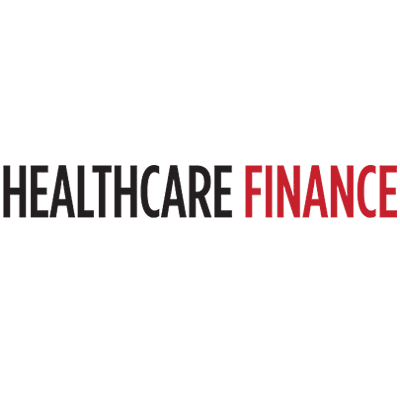Senior Guide to Face Masks: How to Select, Wear and Wash Your Mask
Published July 26, 2020
Follow our Medicare Coronavirus News page for related information on coronavirus (COVID-19) and its impact on Medicare beneficiaries.

Learn More About Medicare
Join our email series to receive your free Medicare guide and the latest information about Medicare and Medicare Advantage.
By clicking "Sign me up!” you are agreeing to receive emails from MedicareAdvantage.com.
As of late July, more than half of American states have mandated wearing a face mask in public. In states where masks are not mandatory, many businesses have implemented their own mask requirements.
Wearing a mask has shown to be an effective method of reducing your chance of contracting – and unknowingly spreading – COVID-19, the disease caused by the novel coronavirus. The Centers for Disease Control & Prevention (CDC) and the World Health Organization (WHO) both recommend wearing a face mask to help slow the spread of the coronavirus.
Because older adults are more likely to develop serious or fatal symptoms of the disease, it’s vitally important for face masks to become part of the everyday wardrobe for seniors – even if it leads to some interesting summer tan lines.
But what type of mask is the most effective? How should they be worn? Where can older adults obtain face masks? We’ll address all those concerns and more below, in our guide to face masks.
What to look for in a face mask
All face masks were not created equal, and the CDC has outlined some basic criteria for what to look for in a mask.
- It must fit snugly against your face.
- It must be secured with ties or ear loops.
- It must include multiple layers of fabric.
- It must allow for breathing without restriction.
- It must be washable without damage or shape change.
The type of material also plays a large role. One study found that the effectiveness of filtration in a homemade face mask can range from 80% to just 5%, depending on the material. According to the study, the most effective design is a dual-layer mask featuring a heavyweight cotton layer along with either a lighter cotton or silk layer.
Look for fabrics with at least a 600-thread count, and avoid single-layer masks or double-layer masks that feature two thin or low-thread count layers.
How to wear your mask
Putting on a face mask sounds simple, but the mask is only effective when worn properly.
- Wash your hands before putting on your mask and again prior to removing it. Your mask is in contact with your nose and mouth, so you don’t want to infect the mask itself with the coronavirus or anything else that could make you sick.
- Avoid touching the mask while it’s on your face. Find a comfortable mask that fits well and won’t leave you scratching or adjusting it. If you need a break from your mask and are in a place where you may safely remove it, do not just slide it down onto your neck or up onto your forehead, as this presents another opportunity for germs or bacteria to infect the mask.
- Make sure the mask fully covers your mouth and nose and is secured underneath your chin.
How to wash your mask
It’s important to wash your face mask.
According to the CDC, you can throw your mask in the washing machine along with the rest of your clothes and use regular detergent with the warmest appropriate setting for the material.
To wash by hand, mix some bleach with water and soak the mask for five minutes before rinsing thoroughly. Be sure that the type of bleach you use is suitable for disinfectant purposes.
Masks can be air dried or placed in a dryer on the highest heat setting.
Where to get a mask
If you do not yet own a face mask or are looking to obtain some extras, there are a variety of options available.
- Search online for “face masks for sale” and choose from a wide range of retailers selling masks that can be delivered right to your door.
- Many stores such as Walmart, Target and smaller retailers are now keeping their shelves stocked with face masks.
- Senior centers and local offices for aging services are supplying masks, and many of them are being handed out free of charge to older adults.
- Many cities and towns have been holding mask giveaways where seniors can receive a free mask without ever leaving their vehicle. Contact your local police department to inquire about any mask giveaway events near you.
- The CDC offers a tutorial on how to make your very own face mask at home.
Learn more about how Medicare is helping cover older adults during the COVID-19 pandemic.

About the author
Christian Worstell is a senior Medicare and health insurance writer with MedicareAdvantage.com. He is also a licensed health insurance agent. Christian is well-known in the insurance industry for the thousands of educational articles he’s written, helping Americans better understand their health insurance and Medicare coverage.
Christian’s work as a Medicare expert has appeared in several top-tier and trade news outlets including Forbes, MarketWatch, WebMD and Yahoo! Finance.
Christian has written hundreds of articles for MedicareAvantage.com that teach Medicare beneficiaries the best practices for navigating Medicare. His articles are read by thousands of older Americans each month. By better understanding their health care coverage, readers may hopefully learn how to limit their out-of-pocket Medicare spending and access quality medical care.
Christian’s passion for his role stems from his desire to make a difference in the senior community. He strongly believes that the more beneficiaries know about their Medicare coverage, the better their overall health and wellness is as a result.
A current resident of Raleigh, Christian is a graduate of Shippensburg University with a bachelor’s degree in journalism.
If you’re a member of the media looking to connect with Christian, please don’t hesitate to email our public relations team at Mike@tzhealthmedia.com.








